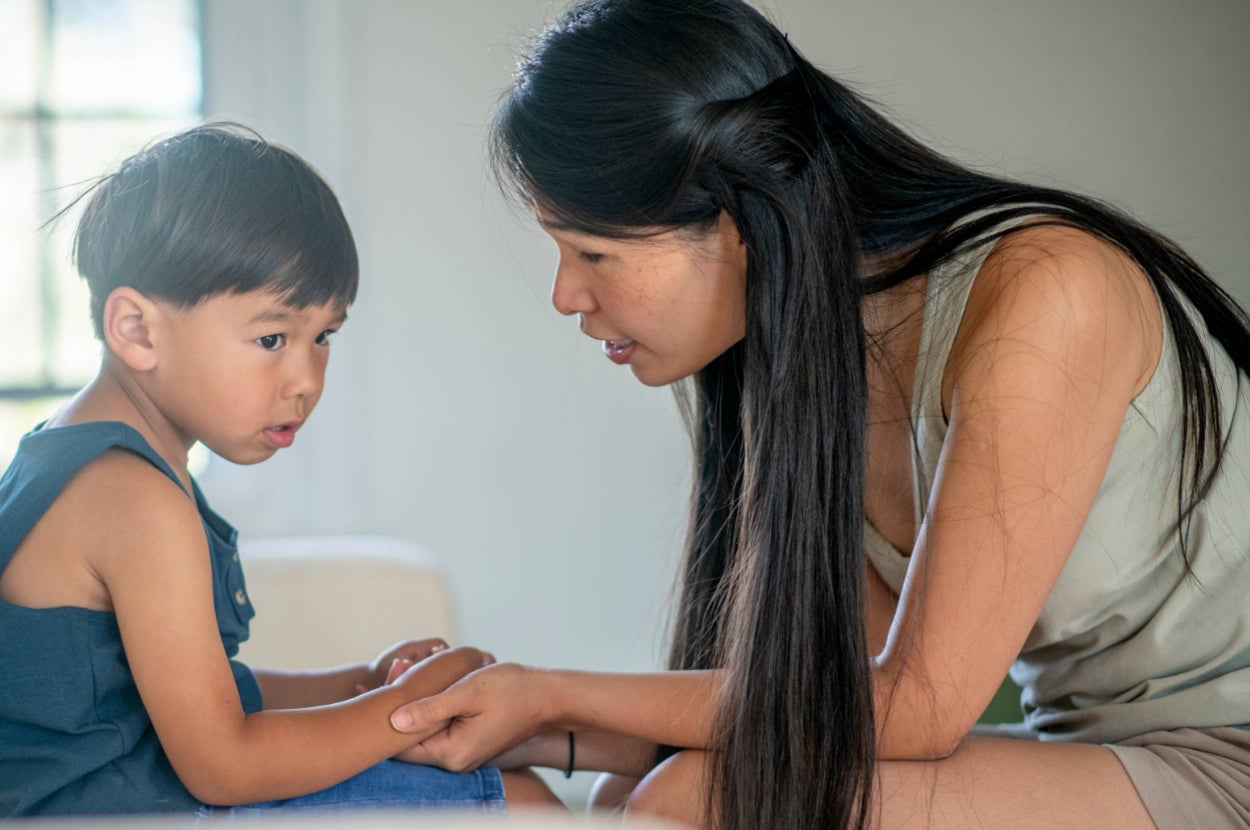
"This can be incredibly jarring for parents, and a common response is, "We love you, but we don't love that behavior." This can feel like a positive approach because there is a loving statement right before the reprimand. But in reality, kids can be left feeling that their parents' love will shift based on their actions, which can lead to a whole slew of other issues."
"When children grow up feeling unconditional love from their parents, they are more likely to become mentally and physically healthy adults. When kids are experiencing big emotions, it's especially important to let them know they can verbalize their feelings without losing your security and support. Phrases like "We love you, but..." can send the wrong signal in these vulnerable moments."
Children commonly act out with biting, screaming, hitting, or lying and may then express deep insecurity by asking if parents are mad or no longer love them. Highly emotional and sensitive children are especially prone to dramatic declarations that reflect fear of losing acceptance. Using phrases like "We love you, but..." can unintentionally communicate that love is conditional, undermining the safety children need to express big emotions. Growing up with consistent unconditional love supports better mental and physical health. Simple, unqualified reassurance and daily small acts of love help maintain security and reduce further issues.
Read at BuzzFeed
Unable to calculate read time
Collection
[
|
...
]